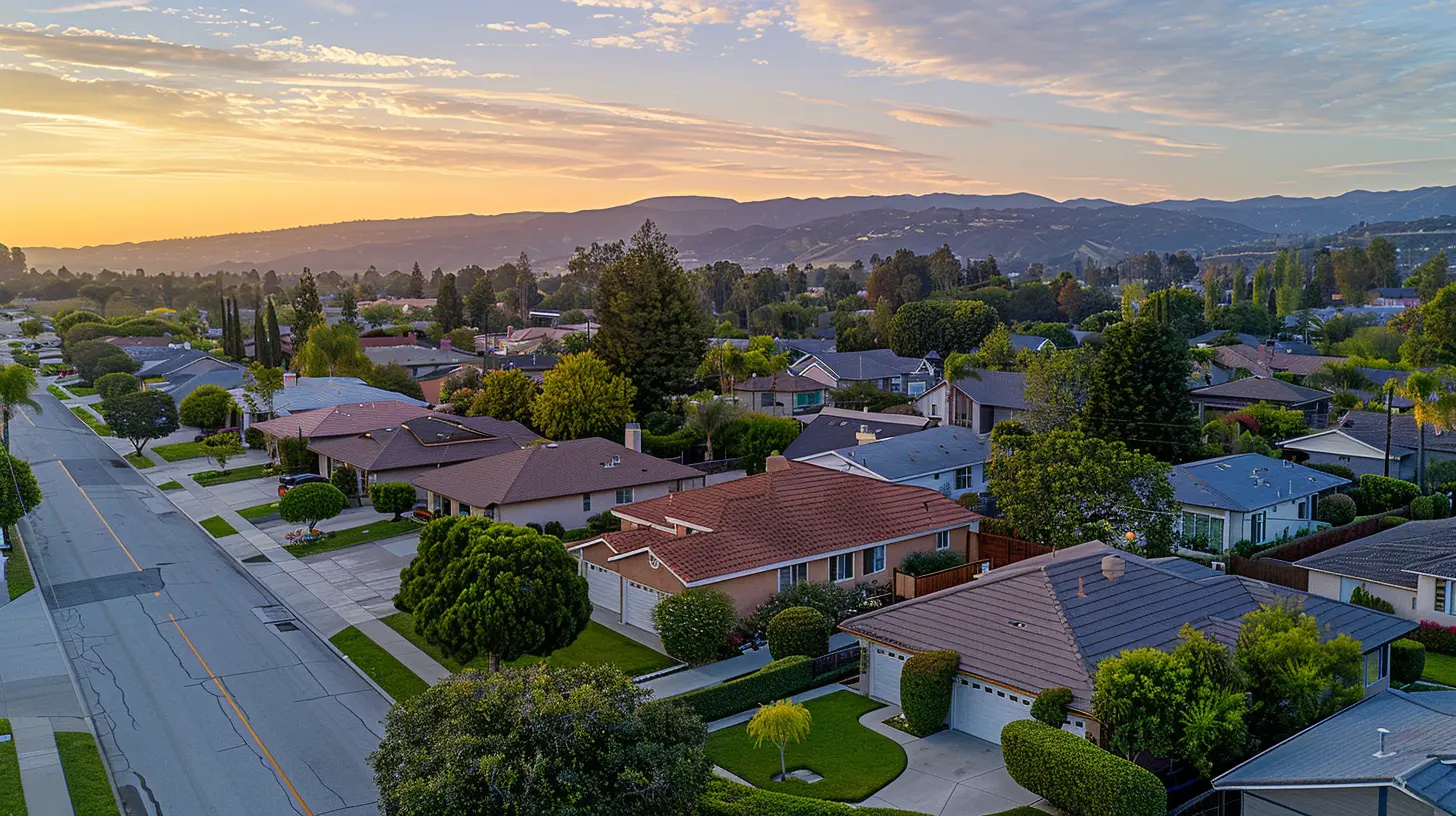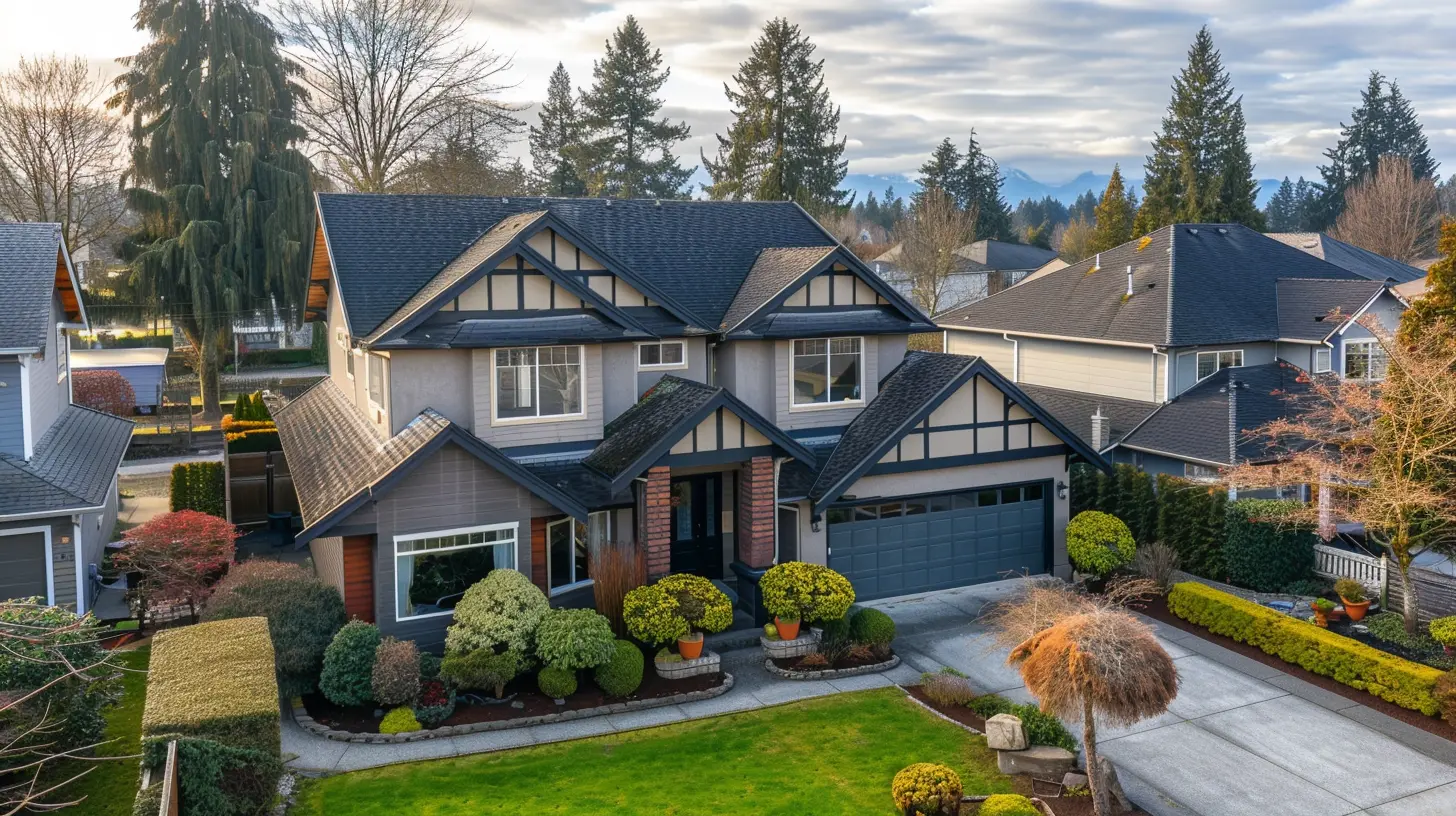Understanding Zoning Laws in Suburban Areas
19 July 2025
When it comes to suburban living, zoning laws play a crucial role in shaping neighborhoods, property values, and even lifestyle choices. But what exactly are zoning laws, and why should you care? If you're a homeowner, investor, or future buyer, understanding these regulations can help you make informed decisions and avoid unexpected headaches down the road.
In this article, we’ll break down zoning laws in suburban areas, how they impact property owners, and what you need to know before buying or developing land. 
What Are Zoning Laws?
Zoning laws are local regulations that dictate how land in a given area can be used. These laws help cities and towns organize land into specific categories, ensuring that residential, commercial, industrial, and recreational spaces are properly designated.For example, zoning laws prevent a factory from being built in the middle of a quiet suburban neighborhood. They help maintain order, property values, and a good quality of life for residents.
In suburban areas, zoning laws are particularly important because they help define the character of a neighborhood. Whether you’re planning to build a home, operate a business, or invest in property, these laws will determine what’s allowed and what isn’t. 
Types of Zoning in Suburban Areas
There are several types of zoning that affect suburban areas, each with its own set of rules and restrictions.1. Residential Zoning
The most common type in suburban areas, residential zoning dictates what types of homes can be built. This category can be further divided into:- Single-family zoning – Allows only standalone homes on individual plots of land.
- Multi-family zoning – Permits duplexes, townhouses, and apartment buildings.
- Mixed-use zoning – Allows a blend of residential and commercial use, such as apartments above retail stores.
Many suburbs favor single-family zoning to maintain a quiet, family-friendly atmosphere. However, with increasing housing demands, some areas are re-evaluating these regulations.
2. Commercial Zoning
If you plan to run a business in a suburban area, you’ll need to check if the land is commercially zoned. Commercial zoning covers spaces for retail stores, offices, restaurants, and other businesses.Suburbs often have designated commercial districts along major roads or in shopping centers to separate businesses from residential neighborhoods. Zoning restrictions determine factors such as:
- Business hours
- Parking space requirements
- Building height and signage regulations
3. Industrial Zoning
Though less common in suburban settings, industrial zoning exists for warehouses, factories, and manufacturing facilities. These zones are typically placed away from residential districts to minimize noise, pollution, and traffic congestion.4. Agricultural Zoning
Some suburbs extend into rural areas where agricultural zoning applies. This zoning category is meant to preserve farmland and limit urban sprawl while allowing farming-related businesses to operate.5. Recreational and Open-Space Zoning
Parks, nature reserves, golf courses, and other recreational spaces fall under this category. These areas are usually protected from development to maintain green spaces for public use.
How Zoning Laws Impact Homeowners and Buyers
Zoning laws don’t just affect developers and businesses—they have a direct impact on homeowners and buyers too. Here’s how:1. Property Use Restrictions
Before purchasing land or a home, it’s essential to check zoning laws to ensure you can use the property as intended. Want to run a daycare business from your home? Planning to build a tiny guest house in your backyard? Zoning laws might have strict rules about such uses.2. Home Additions and Renovations
Thinking about adding an extra bedroom or building a garage? Zoning laws regulate home expansions, including height restrictions, setback requirements, and lot coverage limits. Failing to comply could mean fines or even demolition of unauthorized changes.3. Short-Term Rentals and Home Businesses
With the rise of Airbnb and remote work, more homeowners are using their houses for short-term rentals or home-based businesses. However, some suburban areas have zoning laws that prohibit or heavily regulate these activities to maintain neighborhood stability.4. Property Value and Neighborhood Character
Zoning laws can indirectly affect property values. A well-zoned neighborhood with clear residential and commercial boundaries can attract buyers and maintain home values. On the other hand, if zoning laws change to allow high-density housing or commercial developments, existing homeowners might see shifts in property demand and prices.
How to Check Zoning Laws in Your Area
Before making any property decisions, it’s wise to check local zoning regulations. Here’s how:1. Visit Your Local Government’s Website
Most city and county websites have zoning maps and codes available online. You can search by address to see the zoning designation of a specific property.2. Contact the Local Zoning Office
If online resources aren’t clear, reach out to your local zoning office. They can provide details on what’s allowed and guide you through the process if you need to apply for permits or zoning changes.3. Work with a Real Estate Professional
Real estate agents, attorneys, and developers are familiar with zoning laws and can help navigate any issues. If you’re buying property with specific plans in mind, consulting an expert can prevent future legal troubles.Can Zoning Laws Be Changed?
Zoning laws aren’t set in stone. If a property owner or developer wants to use land in a way that isn’t currently allowed, they can apply for a zoning change or variance.Zoning Change vs. Variance
- A zoning change (rezoning) involves modifying the zoning designation of a property, usually requiring approval from local government officials.- A variance is a special exception granted to override certain zoning restrictions while keeping the overall zoning intact.
Both processes typically involve public hearings, community input, and local government approval.
Common Zoning Challenges in Suburban Areas
While zoning laws are designed to create order, they sometimes lead to conflicts and challenges.1. Housing Affordability Issues
Strict zoning laws that only allow single-family homes can drive up housing prices and limit affordable options. Some suburbs are reassessing zoning rules to permit more multi-family housing to address affordability concerns.2. Disputes Between Residents and Businesses
If a commercial development is proposed near a residential area, homeowners might protest due to traffic congestion, noise, or changes in neighborhood character.3. Environmental and Infrastructure Concerns
As suburbs expand, zoning decisions must consider environmental impacts, water resources, and road infrastructure. Poor zoning planning can lead to overcrowding, increased traffic, and strained public services.Final Thoughts
Zoning laws are the invisible force shaping suburban communities. Whether you're a homeowner, investor, or developer, knowing the zoning regulations in your area can help you make smarter decisions.Before buying property or starting a project, take the time to check local zoning codes, consult professionals, and understand potential obstacles. A little research now can save you from major headaches later.
If you're planning a real estate investment or development, zoning laws should be one of the first things on your checklist. After all, understanding the rules of the game is the key to playing it well.
all images in this post were generated using AI tools
Category:
Suburban HomesAuthor:

Vincent Clayton
Discussion
rate this article
1 comments
Hailey Lamb
Essential knowledge for homeowners!
August 1, 2025 at 1:01 PM

Vincent Clayton
Thank you! I'm glad you found it helpful for homeowners.


